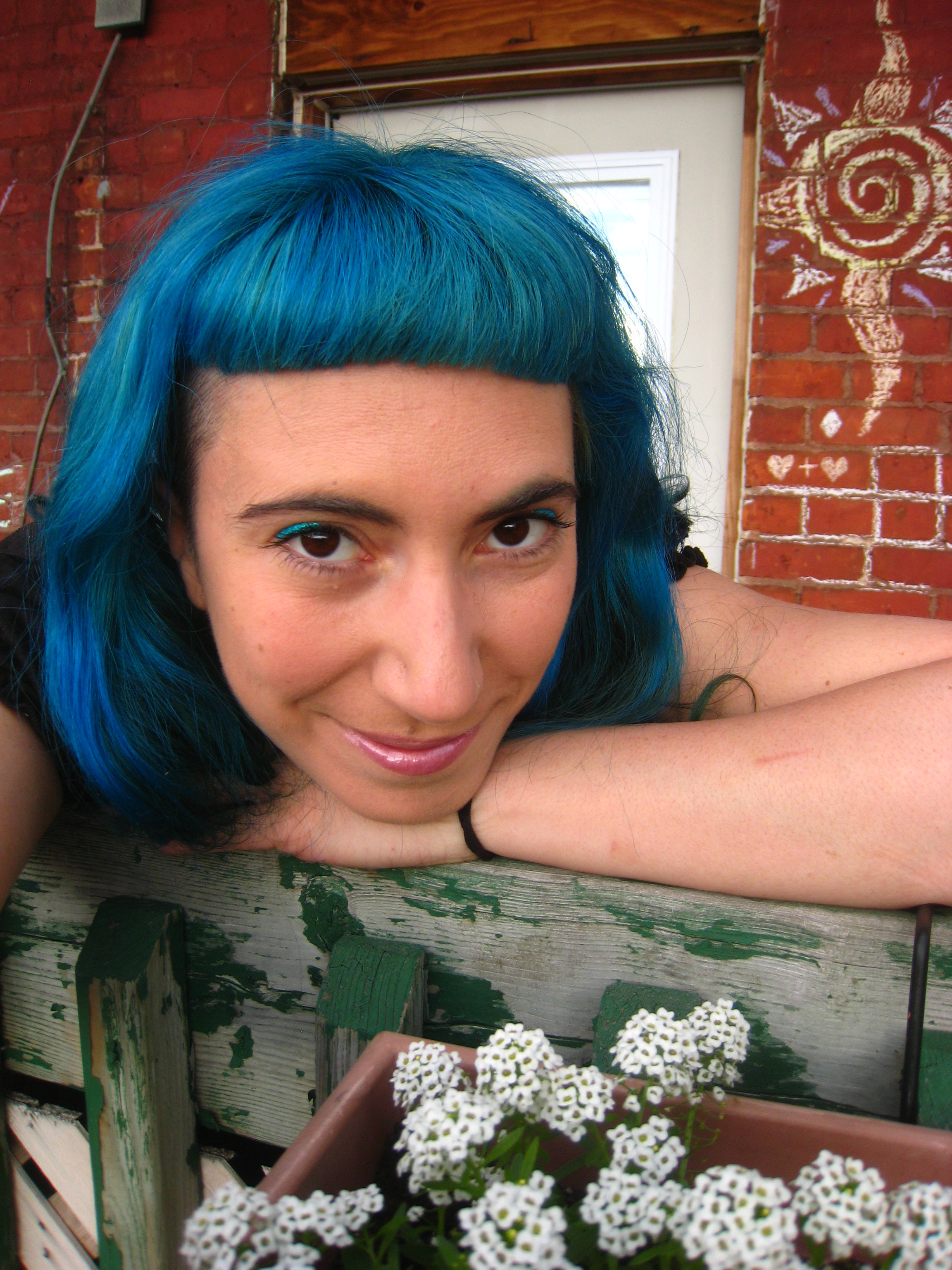I recently had the pleasure of talking with Magenta Baribeau, the 2014 Childfree Woman of the Year about the documentary she is working on, Maman? Non merci! Here’s the Q&A:
What inspired you to do your documentary, Maman? Non merci! (roughly translated as Being a mom? No thanks!)
I started thinking about doing a documentary film about women who chose not to procreate in the fall of 2008 after hearing one too many “Oh, you’ll change your mind!” comments said to me strangers after I answered their question about my not wanting any kids. I started wondering if I was the only thirty year old in the world who did not want to have children. I realized there was a lack of representation of childfree women in the media and searched for documentary films on the subject and couldn’t find any. That’s how I got the idea to make my own.
How did you find childfree people to interview in Canada, France and Belgium?
I decided to interview various people from the Western world about their disinterest in maternity because I wondered if there was a difference in perception between various countries. I also opted for Western countries because I knew that there would be such a great difference in opinions and laws if I were to include, let’s say Africa and Asia, that I’d have enough material for 3 more films!
So I chose France, Belgium and Canada mostly because my first language is French and I wanted to make a French-language film (with English subtitles). I noticed that a lot of books on the subject were written by French and Belgian women and that’s how I ended up flying across the great pond to interview them.
Furthermore, after deciding to make a film on the reality of childfree women, I wanted to meet as many as possible, so I started a blog on the subject and got great responses from all over the globe. I interviewed close to fifty women in and around Montreal and finally selected about fifteen Canadian women to showcase in my film.
 Why have you interviewed childfree people and people who changed their minds and became parents?
Why have you interviewed childfree people and people who changed their minds and became parents?
My film is about childfree women, women who really know that maternity is not for them for various reasons. They are the main focus of my documentary. I chose to film women instead of men or couples because in my research, I found out that there is a much greater pressure to procreate exerted on women than on men. So I thought I’d give them a voice.
But to put their experience into perspective, I had to also interview couples and even a former childfree woman who decided at age thirty-seven her reasons not to have any children weren’t valid anymore. I thought it important to add her views to the film, not because, like most people think, we will sooner or later “change our mind and want to become parents,” but because there are as many reasons not to want children as there are childfree people. Every experience is both unique to each individual and shared by other childfree people around the globe.
What have you learned the most from producing your documentary so far?
That it is a hard and long process, especially when you’re doing a DIY film. Quebec and Canada have been cutting funding to the arts for the last four years and documentary filmmaking has been the hardest hit. There used to be a lot of resources to help budding filmmakers make their first film, but now everything has been cut.
We don’t have patrons or sponsors in Canada to help directors make a film; we rely on government help and right now there isn’t any. Even major directors that have been to Cannes and nominated for Oscars have trouble finding funds to complete their films, so imagine a first-time director such a myself!
 That said, I have a bachelor’s degree in cinema and know a lot of ways to make a film on a small budget. I started a crowdfunding campaign a few years ago on IndieGogo to help me fund my film by asking people to contribute what they can (from $10 to…well, the sky’s the limit). I have spent a lot of time networking, trying to get funds so I can pay my collaborators (soundman, editor, music composer, etc.)—time I could not spend on my film. Making DIY films is a full-time job, yet you have to make ends meet and pay your rent. It’s been quite the puzzle.
That said, I have a bachelor’s degree in cinema and know a lot of ways to make a film on a small budget. I started a crowdfunding campaign a few years ago on IndieGogo to help me fund my film by asking people to contribute what they can (from $10 to…well, the sky’s the limit). I have spent a lot of time networking, trying to get funds so I can pay my collaborators (soundman, editor, music composer, etc.)—time I could not spend on my film. Making DIY films is a full-time job, yet you have to make ends meet and pay your rent. It’s been quite the puzzle.
I’ve learned a lot from the process, not only artistically speaking, but also on a personal level. I’ve met incredible people on this journey, people who believe in my film and have contributed time and money just because they think this subject ought to hit the festival circuit and be shown in theaters because not wanting children is still a taboo in 2014.
The film has received a lot of interest from local and international media, which is making me hopeful that maybe one day, not wanting children will be regarded as just another lifestyle that deserves respect, which is the very subject of my film.
How can people help you fund the post-production phase and help get your film out into the world?
After five years on the project, I’m now at the editing stage, which is the longest and most costly stage. I need to book rooms and editors (for both the sound and image), and so far I’ve been really fortunate. I was awarded fifty percent off at one of the best post-production studios in Montreal.
Still, even after fifty percent off, paying people to edit the film full-time for three months will still cost me close to $15,000. I’ve managed to save up $5,000 by working like a maniac, selling my house and through my crowdfunding campaign. I’m still $10,000 short. Any financial or volunteer help would be most welcome. I may need help starting and managing a new crowdfunding campaign.
It is possible to buy the DVD of my film in advance on my blog (top left corner, follow the Paypal link) for $25, which will help me finish it. It is also possible to contribute more. Anyone donating $100 or more will be featured in the credits and thanked a million times!!
Thank you, Magenta!

